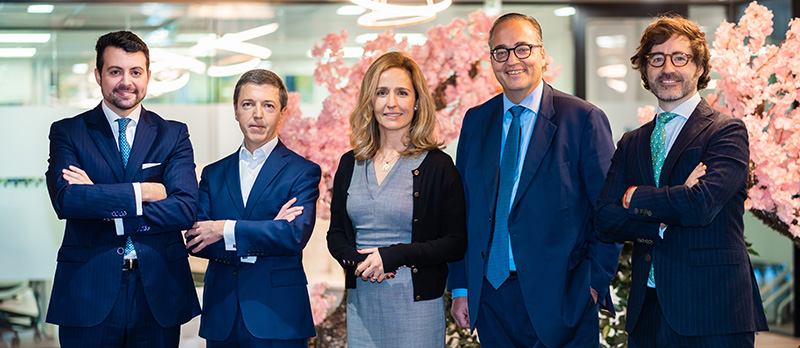
Recently, the Ministry of Economic Affairs and Digital Transformation has published the decision to shorten by six months the transitional period for adapting to the MiCA (Markets in Crypto-Assets) regulation for providers already engaged in the provision of crypto-asset services, reducing it from 18 (the maximum foreseen by the regulation) to 12 months. This decision follows ESMA's communication urging NCAs, industry stakeholders and Member States to speed up the implementation of the MICA regulation as much as possible in order to facilitate legal certainty, commented the participants of the 29th FundsPeople Legal Debate.
The MiCA regulation regulates the crypto-asset market within its scope, from issuance to the provision of crypto-asset-related services. For the latter service, the date of application of the regulation is 30 December 2024. Thereafter, all providers wishing to provide crypto-asset services must apply for a MiCA licence, without which they will not be able to provide these services. However, for entities already providing such services before that date, the regulation allows Member States to apply a transitional "grand-fathering period" of up to 18 months to enable them to obtain a licence, that is, until 30 June 2026. The deadline is now 30 December 2025.
"At the European level, crypto-asset service providers only have to submit to money laundering registration in each jurisdiction. Now ESMA has reminded us that once MICA comes into force, you cannot start providing services unless you were already doing so before", explained Salvador Ruiz, partner at Allen & Overy. In Spain, continued the expert, "the question is whether someone who is not registered with the Bank of Spain (BdE) can prolong obtaining the MICA licence until the end of the transitional period", he added.
In practice, Elisa Ricón, CEO of Inverco, believes that "there are reasons to be sceptical about how prepared we are going to be in 12 months' time".
Market asymmetries
During this one-year transition period, noted Leovigildo Domene, Director of Financial Regulation at Deloitte Legal, "two types of entities will coexist and, therefore, the supervisor is expected to speed up the processes so that the supervised entities can provide the same services as the rest of the operators", he stated.
In addition, the expert believes that "it would be desirable to promote or create a national system based on the simplified process that exists in other jurisdictions such as Ireland, France and Germany, with the aim of being more competitive", he pointed out.
In the same vein, an asymmetry is also created in the Spanish market. "Entities, including credit institutions, interested in providing crypto-asset services will not be able to apply for a licence until the entry into force of MICA, which is 30 December 2024, unless the supervisor facilitates some form of preliminary procedure". Meanwhile, providers, as a general rule, will continue to provide the service until at least 30 December 2025, taking into account the shortening of the grand-fathering period", noted José Carlos Sánchez-Vizcaíno, Director of Depositary Supervision at Cecabank. This situation, which currently exists and will at least continue to exist throughout 2024, "does not facilitate the strengthening of the system in favour of investor protection, which would be provided by the inclusion of supervised, solvent and trustworthy institutions", he added.
Lack of homogeneity
We are talking about a sector that, until now, has not been regulated. "In general, we are dealing with a more lax system. There is no supervisory experience, compliance procedures need to be developed, etc. Everyone is undertaking a huge amount of work to meet the deadline, and there is a downside to the fact that they are reducing it", stressed Ruiz.
From a product perspective, however, "the CNMV has made a significant effort to accept products that can invest in crypto-assets. There is a clear drive to attempt to modernise the fund industry, within regulatory constraints, because, internationally, funds investing in crypto-assets are becoming more and more common", stated Francesc Cholvi, a lawyer at Garrigues.

